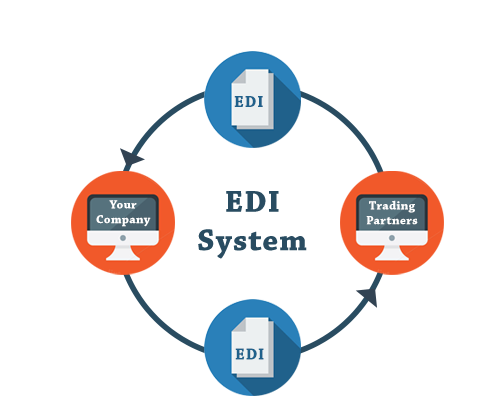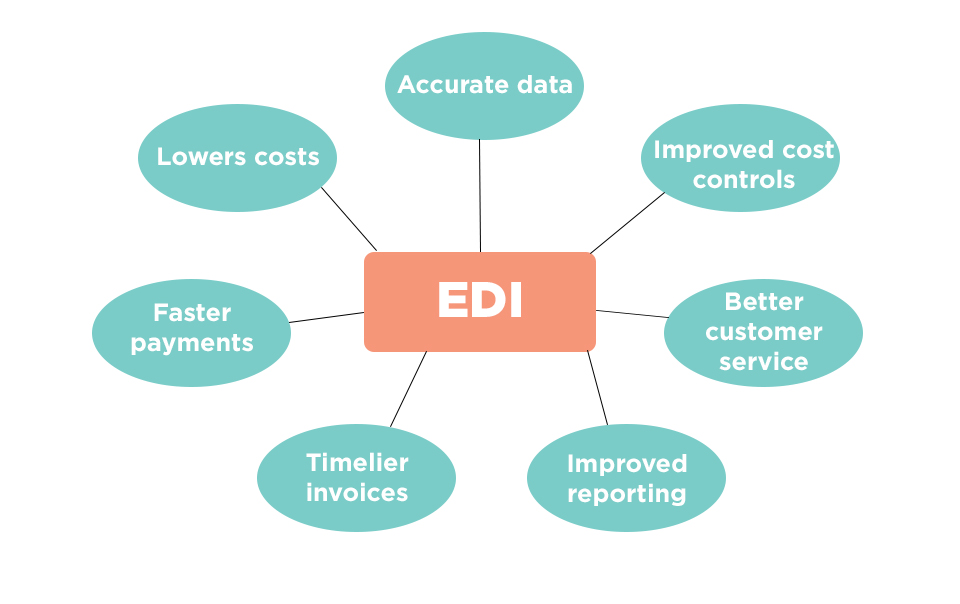Let’s get automating, having the computer do it for you.

There are two acronyms that are heard a lot if you work in the space I do, EDI and API. They perform the same function, though if someone is mentioning an API they're more likely to be selling a cloud service.
EDI means Electronic Data Interchange, API means Application Programming Interface. Newer applications on the Internet tend to offer APIs, older applications EDIs.
The main difference is:
EDI usually involves files being transmitted from one system and then imported into the other, whereas use of an API indicates that the applications are talking directly to each other. That’s it.
For 99% of businesses they’re functionally the same, and which costs more will come down to what tools your provider already has lying around. Anyone pushing one over the other is probably trying to sell you something. For me, they both do the same thing. They take a message from me, and do something; or let me get a message from you, and do something.

But why would I want to set up an interchange with another business? There are four big reasons:
1) I do a lot of work with someone, and I want to cut down the time spent entering data.
This is the big driving force for integrations to big trading partners (such as Foodstuffs, Coles, Mitre10, Fletchers, Ravensdown, Bunnings, Placemakers). I do so much work with this person I want to automate it. By doing this, it:
- Lowers costs because there are fewer people involved. (Once setup, an interchange can be very stable, especially if people don’t mess with it.)
- Brings through accurate data. No more incorrectly entered orders from a phone call, no arguments over “I didn’t order this”, and no surprises when the bill arrives; it’s all been agreed.
- Adds a new level of commitment to your business relationship. (There’s a cost to switch suppliers because they have to hire more staff, so it’s easier for them to keep dealing with you.)
In this way, setting up interchanges is a good way to keep my competitors away, but it also locks me in (because I’ve sunk a cost into this relationship.). But this isn’t so different from every business I have, and if spending upfront can save me a FTE per year, the business will quickly recoup the cost.
2) Allows me to offer better data to my customers.
This is the driving force I see behind logistics integrations. Coles might order you to enter things into their system just so, which lets their supply chain manage itself completely, but just the same I could integrate my system to Mainfreight, GoSuiteSpot, or CourierPost so I can give good tracking updates to my customers when they buy from my website.
The simplest end of this is just letting my customers know the tracking number on their order, so they know when their parcel will arrive.
The motivators I see here are:
- Improved cost control – I can easier see the true cost of my freight, because my supplier provides it to me, and I can easily reconcile my bill to the actual orders I’ve placed.
- Improved customer service – customer service staff are no longer unsure where a package is, when someone calls, they can say with confidence where a package is and follow it up as required with the freight operator.
- Customers self-service – customers who previously might have called to worry about where their package is can now check their package location online. They’re happier, and my staff are more available to help others.
- Improves interactions – customers who know I’ve dispatched a parcel are unhappy with the freight company, not unhappy with my company. They think fondly of me and have delight in their dealings with me.

3) It makes all of the information accurate.
People mishear things and the best typists still make mistakes. But the computer sends exactly what it is told to send. The number of errors drops, and I can see the information I need.
- Accuracy drops costs – no more re-entering.
- Accuracy drops costs – reconciliations are easier.
- Accuracy improves reporting – we can link the stages of an order together better because we receive all of them.
4) Timeliness
Timeliness can be a big one – both EDIs and APIs offer big improvements over manual processes.
Why? Because there’s no more chance that someone forgets to hit send on the invoice, or that the mail gets lost. While we treat emails as being received, the truth is that they aren’t always received (https://blog.returnpath.com/email-deliverability-still-plagues-commercial-email-senders-worldwide-only-81-of-email-reaches-the-inbox/).
Forgive the old article in the link but email receipts just like physical mail aren’t guaranteed. And plus people get a lot of spam, and a lot of fake requests. There are lots of reasons this can go wrong and they all cost money.
- Timelier invoicing and statements increases the likelihood of people paying.
- Timelier information to my shipping company means they can schedule pickups faster for my customer’s packages.
- Timelier processing of my customer’s orders makes them happier with me, which makes them come back.
This has been a very basic primer on Automation via EDI or API, future posts will dive more into some automatic options.







